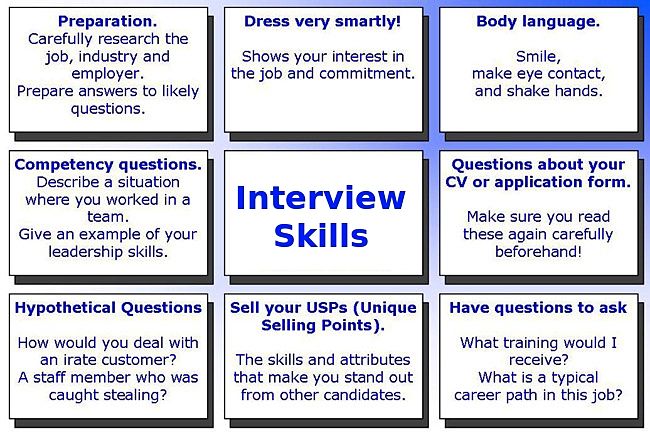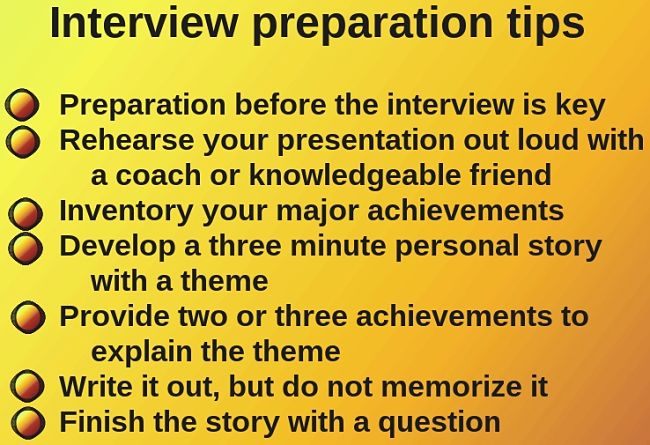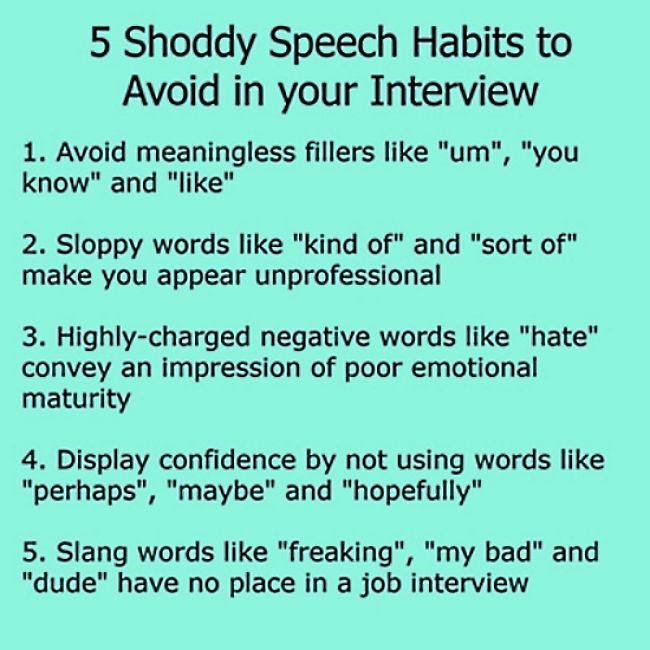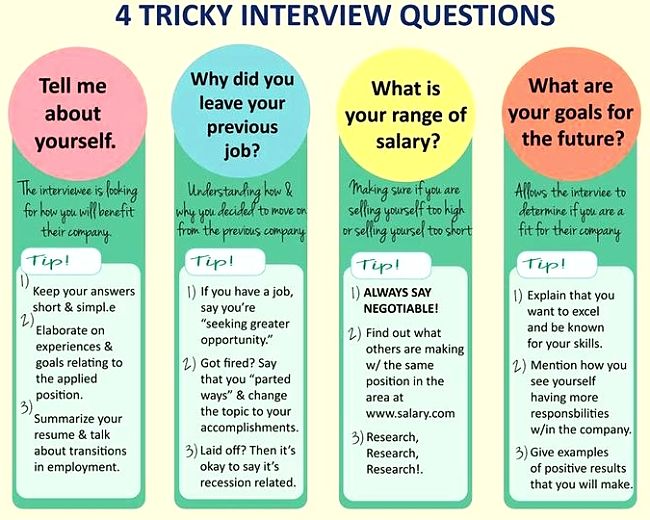Best Answers to the Worst Interview Questions - Tips, How to Prepare
Being successful in interviews is about learning to show how you are the best candidate for the job and are ideally suited for the role in the company's community. A job is a ticket the company's community to just a list of task and targets.
A job interview is like the 'pearly gates'. It is a doorway or entrance to the company's established cultural boundaries. There are a lot of prejudices in selecting a new team member that will fit in. The interview panel wants to ensure that they are not choosing 'a lemon' or a flop, or someone who will cause conflict and disruption. Your CV states your qualifications and experience.
While the interview may help to provide the details, it is more about you the potential employee rather than the job itself. The interview process is designed to ensure that the person selected can become one of the existing team and will be productive and fulfill the expectation of the job description.
The interview panel have to be mean and tricky because they know you will be defensive and will want to show yourself in the best light, hiding your blemishes and short-comings. In the worst case the interview panel may lob in a little hand-grenade and see if you can defuse it before it explodes.
So being prepared for an interview means doing your homework about the job, the company, their community values. You have to convince them that you are the best candidate and that you will mesh in with their expectations. You can only do this if you can answer the toughest questions well.
This article provides tips and guides to the worst interview questions you could be asked and the smart and best answers to them. It also provides advice on how to handle the unexpected. It's hard not to be paranoid, but expect it, and do not overreact as this is a sign of weakness.

How to Do Well at Interviews - Prepare Well, Practice Beforehand
Performing your best at interviews is not as hard as it seems. The main keys to a successful outcome are thorough and correct preparation, predicting the tough questions and getting some practice. Knowing what to prepare for, and what to focus on, when doing your homework are the keys. Don't try to memorize the answers or you will sound like a robot. But the more you think about the tough questions and the best answers to them the better will be the outcome. Also getting some practice will make you more fluid in your delivery and help with confidence. Good interview outcomes depends on building rapport and trust, and having a good two way conversation as well as providing good answers. Body language, eye contact, confidence, friendliness and attitude are also very important.
Fundamentally all interviewers want to know three basic things about the person:
- how easily you will fit into the existing workplace culture and work teams
- how motivated or driven you are
- whether you can do the job by having the right qualifications and experience
They are also looking for someone who has the skills and attributes for the job:
- ability to provide effective customers service and to represent the company's interests
- ability to cope with change and to drive change to improve productivity in the workplace
- good interpersonal communication skills both with colleagues and management;
- planning and organisation skills to work effectively and productively;
- capacity and track record as a good team player
Some of The Toughest Questions and Best Answers
'Tell me about yourself'
This is perhaps one of the commonest introductory questions. It is supposed to put you at ease by getting you talking about yourself. But is can be a trap or a minefield tricking you into to revealing too much about yourself, especially things that are not relevant for the position. The hidden agenda is to see if you are articulate, organised and professional. The way you answer the question is probably more important than the answer itself.
Tips:
- Stick to your career, not personal information and life's experiences
- Don't waste your best points on what is supposed to be a warm up.
- Cover four topics: education, early years, work history, recent career experience (emphasise this last one).
- Keep your answer to 60-120 seconds at most
- Don't meander through your entire resume
- Ask questions, generate a conversation and engage the interviewers.
- Do your homework, know what the panel are seeking and design your answer accordingly.
- Give them the key facts, not your life story
'Give us an example where you failed or did something you were ashamed of '
This can be a real trap as it is asking you to reveal your weaknesses. Delay answering for a while to give the impression that you have to struggle to find anything. Prepare by recalling something funny, trivial or some example where you made a mistake but were able to correct it in a very positive way with a fabulous outcome. Don't get defensive and avoid confessing something you regret. Don't make a joke at your own expense. Try to involve the interview panel by getting them to nod agreement on how they had made the same mistake. No one is perfect. Admit it, but show how you use these rare mistakes to your advantage and to the advantage of your employer. Lack of knowledge is a good one, as everyone has things to learn and they don't know everything.
Tips
- Avoid making fun of someone else, calling them fools or idiots, and blaming them.
- Be honest and address the interviewer as a colleague but not a buddy or friend.
- Don't use any generalized answers or tired phrases such as "I work so hard I don't notice things".
- Keep your emotions firmly under control and no displayed
- Emphasise your ability to work effectively with all your colleagues and clients
The Pregnant Pause
This may not be obvious but it may be done deliberately to see how you react under stress and how you are coping with the interview. Be cool, relaxed and calm. Wait awhile. Engage one or more of the interviewers with a smile. If the pause continues use the opportunity to ask a question yourself.
'Where Do you See Yourself in 6-Months Time?'
This type of question is designed to probe whether you are a team player of focused on your own advancement and ambition. There may be little opportunity for promotion and so it pays to be careful what you say. Always make it clear that you look forward to opportunities for advancement, but only by hard works and being a team player.
There's nothing wrong with being ambitious as this is expected for a good candidate who works hard, learns and gets experience. You don't want to give the impression that you will leave if you don't get offered a promotion, that promotion is your primary objective or that you may be too aggressive. The primary thing to focus on is your devotion to making a major contribution to the company as a team player and a willing learner.
'If We Hire You, What's Your 100-Day Plan?'
You should be well prepared for this is it's a new position and the company is expanding into a new area, Do your homework so you can make a genuine contribution to this. Don't be too ambitious and they may hold you to the targets. Focus on the need to develop a plan, targets and a delivery strategy with the existing management and structure.
'Why is there a gap in your work history?'
Again be prepared for this if it is a real period of unemployment. Emphasise the positive things you did, the list of activities you undertook and the self-education tasks you set yourself. Convince the interview panel that you spent the time productively.
'Describe a Recent Situation where Old Solutions did not Work?'
This question is seeking a creative answer and how you solved it, not the details of the failure. Demonstrate how your knowledge is up to date in terms of the latest tools and methods. Show how you quickly identified that the old approach would be unproductive and how you implemented new creative ideas to solving the problems and deliver good outcomes. You should be careful not to overshoot by identifying a solution that the company has rejected or is incapable of implementing.
'What would the person who likes you least in the world say about you?'
You need to prepare for this type of question, because delays with answers or poor answers can be a disaster. The minefield is that the question asks you to identify "what's your worst quality or weakness?" Highlight an aspect of your personality that could initially appear negative, but is ultimately a positive attribute. A good example is Patience—or lack of it. It shows how committed you are to getting the job done quickly, but how you get frustrated when others can't keep up. It is hardly a bad thing from a management point of view.
'What is the biggest risk you've ever taken?'
You must be able to show examples of your willingness to take risks, but make sure the ones you discuss had glorious outcomes and show how you managed the risks.
'Describe a time when you were part of a team and you disagreed with tactics. How did you deal with the conflict?'
This question relates to your ability to be a team player and resolve disputes by negotiation. You must also show a willingness to 'beg to differ' and move on. Many times you may not get your own way especially if you are new to the company. It's important to describe the situation clearly and to identify what specific action you took to convince colleagues that you way was better and describe the result of that action. Only discuss the successful ones.
'If you could alter one aspect of your last job, what would it be?'
There are many traps in this one. Don't make any disparaging comments about former colleagues or managers. Try to focus on frustrations that the new job will satisfy and provide new opportunities. You must also be able to show you can vocalize your problems as soon as they arise. Generally it is better to keep well clear of people issues and focus on technology instead.
'Why should we appoint you?'
This may be used as an introductory question that many people may be unprepared to answer. It is something that the interviewers should be answering not the candidate. You need to do your homework well and instantly pinpoint your own unique qualifications, skills, aptitudes and experience for the job. This lies at the heart of what you want to get across throughout the entire interview. This question should be a wonderful opportunity to summarise this information. What they are really asking is why you are better qualified, have more experience and would do the job better than all the other candidates. Do you homework and prepare a summary for this in ranked order.
'What things do you think are important for a person's progress in an organisation?'
Seize on this question as a fabulous opportunity for you to highlight your strengths. A Good answer is to highlight three things: Your ability to do the job well, your willingness to learn new things, your ability adapt to changing circumstances and quickly become part of the work team. Secondly discuss how important it is to mesh in with the culture of the organisation (get on with colleagues). Thirdly, discuss the importance of having high motivation, drive and determination and to have outcome that exceed expectations and targets. Mention that you would expect all of these things of anyone under your supervision who applied for promotion in the organisation.
'Why would you like to work for our organisation?'
The tone of the answer should be about wanting to contribute and work as part of a great and productive team meeting productivity goals and targets. State your conviction to maximise your contribution to the company. Highlight the success of the company and its achievements in product innovation and development of a great work culture. Mention that you have spoken to various staff that you know who have talked about the excellent support, training, rewards and recognition employees receive from the company. You also value the excellent work environment. Emphasise your keenness to work for a company that offers challenging work, that is at the forefront of their field and offers good prospects for development and promotion.
'What motivates you at work?'
Emphasise three things. Firstly problem solving - especially highly technical problems that require specialised knowledge; Secondly, ongoing learning and skills development; Thirdly working in a great team environment that welcomes innovation and creative solutions to meet group targets and objectives.
'What qualities do you think are important to be successful in this field?'
This type of question is best answered by addressing the main duties of the job stated in the duty statement and selection criteria. Emphasise your skills, knowledge and experience relevant to the position. You should be able to answer this question well using all the homework you have done. This includes talking with staff already working there if you have access to them.
'Tell us about a time you handled a difficult situation with a co-worker'
You answer should show a commitment to consult with colleagues, and to try to solve a problem directly rather than involving senior management. You should also show your ability to communicate properly and securely to derived good outcome for the entire team involved. Often there may be broader circumstances that triggered the problem.
'Tell us about a time you were struggling to meet a very tight deadline'
Start by discussing how you consistently meet all your deadlines and targets with well developed organising and planning principles. Show how you plan your work well ahead to ensure there are few surprises. How you allow for contingencies to deal with unexpected hurdles. Illustrate how this organisation allowed you to focus all your energies over a short period of time to deal with the issues and were still able to meet the deadline. What is really important is to emphasise the way your track and monitor projects and have early-warning systems in place so you can respond quickly.
'What sort of manager would you like to work for?'
Be careful to stick to general principles and to avoid potentially lecturing to you future boss. Discuss the ideal attributes of a good manager from the employee perspective. Say that you expect a manager to understand and implement sound leadership principles such as consulting and engaging staff, acknowledging for hard work and delivering targets, sensitivity and willingness to offer a helping hand to staff that are struggling and having regular two-way feed-back sessions. A good manager should be firm, focused, demanding, but fair one and has the communication and management to get the most from staff by helping them develop.
'How do you deal with criticism?'
Stress your ability to clearly distinguish between constructive and positive criticism designed for improvement and negative criticism designed to condemn and hurt. Show how you expect and welcome criticism, innovation and improvements suggested by colleagues. Say how you recognise that everyone makes mistakes and needs to reconsider what they are doing. Show ho you consider criticism as an essential part of a willingness to learn and improve.
General Tips for Answering to Tough Interview Questions
- Always do your homework.
- Develop a list of expected interview questions and practise your response to them aloud. Don't just think about them - jot down some dot points and headings and keep practising your responses - hopefully with a friend listening and providing feedback. Unfortunately your delivery and performance are important.
- Practise questions that relate not just to your qualifications and experience, but to your communication skills, your ability to resolve conflicts, time management, productivity and customer service skills
- Don't get angry if the interviewers are not experienced and the questions seem silly or are designed to trap you. Make sure your professionalism shines through.
- Believe in yourself
- Stay sharp and confident
- Be truthful and avoid heading down pathways where you over state your knowledge, skills and experience and get trapped into showing your incompetence or deficiencies.



